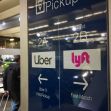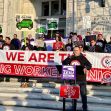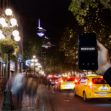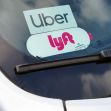A group of Uber and Lyft drivers has come together to file a lawsuit in the California Supreme Court this past week. The aim of the lawsuit is to overturn a ballot measure, Prop 22, which was passed by California voters last November.
The basis of Prop 22 is that rideshare companies like Uber and Lyft as well as other "gig" companies can now treat their workers as independent contractors as opposed to employees. Unlike employees, independent contractors or gig workers do not get employee benefits like sick days, healthcare, overtime pay, and other standard benefits employees get to enjoy. However, prop 22 does offer what is considered "alternative benefits." These alternative benefits include minimum wage and subsidies for health insurance provided that workers put in at least 25 hours of work a week. Supporters of Prop 22 also argue the gig workers will have the flexibility and independence to work for however long and whenever they want.
Along with these employment benefit provisions, Uber and Lyft drivers argue that Prop 22 is unconstitutional because it takes away significant power from the legislature that would allow drivers access to basic rights such as the right to organize.
Labor unions have recently joined in on the fight, siding with Uber and Lyft drivers. Bob Schoonover of the SEIU union shared with the local news outlets, "Prop. 22 is unconstitutional. It's an attack on California's rights that if left unchecked will grant permission to companies like Uber and Lyft to dismantle workers' rights across the country."
A group in support of Prop 22 composed of Uber, Lyft and some drivers, also shared with a local news outlet, "Voters across the political spectrum spoke loud and clear, passing Prop 22 in a landslide. Meritless lawsuits that seek to undermine the clear democratic will of the people do not stand up to scrutiny in the courts."
Rolling Back Prop 22 Faces Several Hurdles
Mary-Beth Moylan, associate dean of McGeorge Law School in Sacramento, shared with local news outlets that the fight would likely be an uphill battle for Uber and Lyft drivers.
Moylan explains that the California Supreme Court will need to agree to hear the case; otherwise, they will kick it to the lower courts. In the lower courts, the facts of the case would be argued before they could be sent back up to the state Supreme Court. This process could take years.
The next issue at hand is that Prop 22 passed with nearly 60% of the vote. Moylan explains, “Generally speaking, courts in California don't like to overturn the will of the people. But the petitioners claim that the people did not have the power to do what they did. There are instances where the California courts have come in and said ... it's nice that this is what the people wanted to do, but our constitution doesn't permit the people to do this."
The measure which passed in November was drafted by Uber and Lyft and quickly garnered the support of other big companies, including Postmates, Instacart, and Doordash. After drafting the proposition, these companies campaigned intensively to encourage voters to “say yes to Prop 22.”
Uber, Lyft, and other supporters of Prop 22 put roughly $200 million into the ballot measure, making it the most expensive in California State history.
Critics of Prop 22 argue that the outcome of this measure will have lasting effects that could potentially be felt throughout the nation. In some parts of California, businesses including grocery stores have already started swapping out their grocery delivery services positions and offering them to third-party drivers instead.
San Diego Assemblywoman Lorena Gonzalez voiced her disapproval with Prop 22, sharing, “Our system is so broken. More money for the millionaires & billionaires, the investors and Wall Street. Fewer protections and money for those actually doing the work. We must and will keep fighting.”
There is also the curiosity of whether or not other states across the nation will follow in California's footsteps with their own variations of Prop 22.






